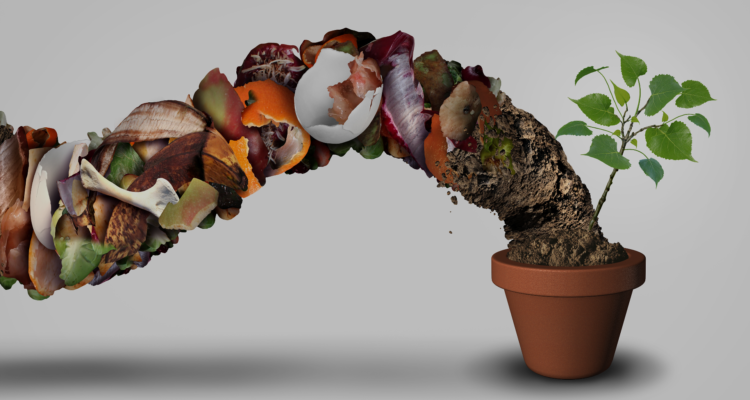◊ By Poonam Bir Kasturi
Visit ORGANIC SHOP by Pure & Eco India
What is composting and why should I bother?
Most people are unaware their kitchen waste can be converted into good manure if they just added crushed dried leaves to it daily. Every living body decomposes naturally after death. Nature does not create any waste. Only man made things are wasteful. Everyone should know how to compost the same way everyone should know how to keep their teeth clean. It is hygienic. And necessary.
How is it hygienic?
Most of us don’t register our daily actions contribute to the pollution of the water, food, and air we consume. Owing to this ignorance, we further complicate the situation by piling decomposable wastes on to non-decomposable ones in the kitchen dustbin. This generates a mountain of waste in cities. Furthermore, we dump household waste in open and untreated dumpsters, where it releases poisonous gases and leachate, which gets absorbed into the ground water and contaminates it.
If we composted our kitchen waste at home, we could prevent pollution and at the same time, get good manure for our kitchen gardens/potted plants. Moreover, abstaining from mixing food waste with recyclable items will help managing solid wastes, which would benefit us through a cleaner environment.
It reeks and will make my family sick!
Actually, if done correctly, it does not stink. Besides, there are far greater contributors to sickness present in the polluted atmosphere in our cities, streets and gutters, which are no match for the constituents of a composting bin.
Alright, how do I do it at home?
Simple. You will need three 20-litre containers for a family of four. These should be aerated containers, with holes on the sides, and a lid. Put your kitchen waste in the first one (fill one container at a time). Cover with an equal amount of crushed, dried leaves (they should not be green) or use dried coco peat powder (available at nursery stores). Do this daily. Stir the collection every third day. Once the container is full, start collecting waste in the second one.
It should take about one-and-half months to fill all three containers. After the third container is full, the contents of the first container will appear dark, dry and homogenised. Some kernels (in case of fruits) and bones (if non vegetarian fare was involved) might appear, but that is fine.
All the solid pieces like bones and mango kernels should be extracted and introduced to the second container to facilitate further decomposition.
Remove the contents of the first container and store in a basket. Keep the contents moist (not wet) for another two months while in the basket. This moist processing will ultimately metamorphose the composted waste into ready-to-use manure.
What if the containers or buckets stink? And what of pesky insects?
Stinking containers indicate that the dried leaves or coco peat mixed with the waste are inadequate in proportion. Just add some more dried leaves or coco peat and stir thoroughly. The bucket may stink if the water added to moisten the waste is in excess. Dry it out in the sun, add more leaves or coco peat and stir.
There will be some flies. Get rid of them the old fashioned way—swat them with a fly bat. Better still, use turmeric powder or make a spray of organic repellent, using garlic and green chilli boiled in water. This usually does the trick.
ABOUT THE AUTHOR

The author is Founder, Daily Dump, a company engaged in designing and building products and services for decentralised waste management in homes, communities, offices and public spaces.



Leave a Reply